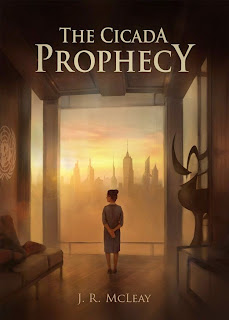This Kindle Single is an incredibly compelling piece of long-form journalism than reads like a gripping novel. It’s the agonizing true story of a tragedy that befalls three young people in America’s heartland, and the consequences that played out over the next three years.
In the summer of 2010, three young men, Will Piper, Alex “Paco” Pacas and Wyatt Whitebread took jobs working for a grain elevator complex in the small town of Mount Carroll, Illinois, deep in the heart of America’s Corn Belt.
In a case of egregiously poor judgment, lack of oversight and stunning disregard for federal safety regulations, the boys were directed to climb inside a large grain bin filled with tons of corn. Their job was to loosen up clots of kernels where they tended to stick along the sides of the metal bin so that the grain would auger smoothly out the bottom.
I don’t want to go into a lot of detail and rob too much of the story for the reader, except to say that three young men went inside the bin, and only one came back out alive. The survivor, Will Piper, was nearly killed as well, but far worse, he was an up-close witness to the horrifying suffocation of his two friends. One of them was just 15 years old.
Journalist ERIKA HAYSAKI delivers a masterful piece of writing. She tells a sensational story without ever sensationalizing. She never falls prey to melodramatic hype or gratuitous sentimentalism. She maintains an uncanny discipline by writing within herself — and by that I mean that she renders this story as a “just-the-facts” journalist.
Hayasaki is the kind of writer who is savvy enough to recognize when the true details are enough in themselves to deliver a captivating drama. I must add: What’s truly magical is how Hayasaki manages to make the reader feel the emotional impacts, the sense of heartfelt tragedy and the numbing confusion about the unexpected random cruelty of life can dish out — and she does it all while staying in command of her professional objectivity as a reporter. It’s brilliant!
There is background theme to this work as well. Hayasaki has chosen to position this case against a troubling phenomenon — the ascendancy of the commodity of corn to a place where it has become extraordinarily pervasive in our lives.
 |
| Erika Hayasaki |
The dominance of corn is a complex issue. It encompasses global food production, distribution and other fundamental choices about how we are managing what we eat and the environment — but also — corn has become a enormous factor in other areas of our economy. We dump corn into our gas tanks in the form of ethanol, we use it to make plastics, and an array of other non-food materials that reach deeply into our lives. Is it sustainable?
At first, I thought the author was taking a wrong turn in this regard; however, she ends up not letting this overarching issue consume too much of the primary narrative, and the corn factor ends up being tantalizing food for thought. (No pun intended).
This is the second Erika Hayasaki work I have read. The first, another Kindle Single titled “Dead or Alive,” (I review it here on Amazon), and that was an equally skillful and impressive piece of writing. so I would recommend you check out that one too.
It’s great stuff.
DROWNED BY CORN
Ken Korczak is a former newspaper reporter, government information officer, served as an advocate for homeless people as a VISTA Volunteer, and taught journalism at the University of North Dakota for five years. He is the author of: BIRD BRAIN GENIUS
All NEW: KEN'S BOOK REVIEW SITE ON FACEBOOK: REMOTE BOOK REVIEWING


